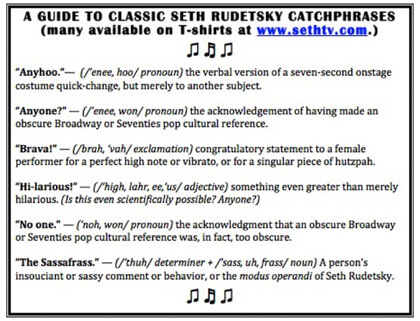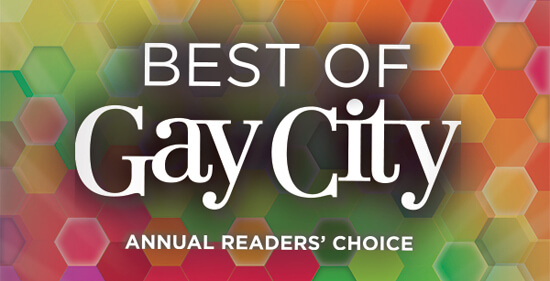The critical hit play in London at the moment is a two-part, nearly seven-hour commitment — written by a Latinx American man with roots in the Deep South — that is gayer than “Angels in America” and “Torch Song” combined. Matthew Lopez’s “The Inheritance” is set among a group of mostly 30-ish gay New Yorkers trying to tell their stories with the actual assistance of E.M. Forster, whose “Howard’s End” is the framework for the play. (You’ll just have to see it.)
London also boasts a new conception of Stephen Sondheim’s “Company,” with a female lead and the addition of a gay male couple, a terrific if disturbing new play by out gay Mark Ravenhill, a controversial take on Richard II by out gay actor Simon Russell Beale, Ralph Fiennes and Sophie Okonedo in “Antony & Cleopatra,” and an uplifting expansion of “Hadestown” led by out gay André De Shields that is headed for Broadway.
But it is Lopez’s “The Inheritance” at the Noel Coward (to Jan. 5 only) that’s got everybody talking. It started at the Young Vic and was brought to the West End by Broadway producers including Tom Kirdahy. New York dates haven’t been announced, but with direction by Stephen Daldry and rave reviews, a transfer seems inevitable unless President Mike Pence brings back censorship of the arts. And Lopez packs in plenty of scenes of gay love and sex that will make school productions more controversial than the current dust-ups over “Angels” and even “The Laramie Project.”

Lopez, however, is not a provocateur. He’s paying earnest homage to Forster’s “Howard’s End,” which spoke to him as a teenager — even before he discovered Forster’s posthumously published gay novel “Maurice” at 26. If you know “Howard’s End,” your mind will often go to correlating Lopez’s characters with Forster’s — which can be distracting since he consciously deviates from Forster in significant ways. Nevertheless, Paul Hilton is a mediating presence as Forster, who died in 1970, finding ways to dialogue with the kind of out gay men who only emerged in real numbers after Stonewall and accelerated by the AIDS plague that both decimated us and brought legions out to fight it.
The play centers on two gay couples — playwright Toby (Andrew Burnap) and activist Eric (Kyle Soller) just into their 30s and wealthy conservative businessman Henry (John Benjamin Hickey) and his dying longtime partner Walter (also Hilton) and their intricate interrelationships. The outsiders, young Adam and Leo, who are also part of these men’s lives, are both played by Samuel H. Levine in standout performances.
Toby dresses down Forster for not releasing “Maurice,” which he started in 1913 (18 years after the conviction of Oscar Wilde for buggery), before his death, saying he could have “toppled mountains” and “saved lives” had he not held it back until ’71. But even I who have been urging my brothers and sisters to come out for 45 years would not impose that kind of judgment on LGBTQ people pre-Stonewall.

I could go on describing the many plot turns — of which there are too many — some of them over-the-top melodramatic especially in Part II. But the closing scene of Part I was so subdued, perfect, and devastatingly moving that it made the day worth it — a feat not even Vanessa Redgrave (Mrs. Wilcox in the movie of “Howard’s End”) can top as lovely as it is to see her helping end Part II elegiacally.
The play could be improved by some serious cutting and dropping of subplots. It’s more fit for a mini-series now (like the latest TV version of “Howard’s End”). Corrections are needed in Lopez’s understanding of rent control and HIV testing and PrEP. But I don’t want to be too critical of so lauded and ambitious a creation that brings so many gay themes to vivid life.
The Almeida Theatre’s “The Tragedy of King Richard the Second” (to Feb. 2 and on NTLive) has been cut — to the bone (one hour, 40 minutes, with no intermission) — in Joe Hill-Gibbins’ staging. Eight players, all dressed down, briskly play all the parts on a bare stage save for buckets of blood, dirt, and water that get thrown at each other. The only “costume” is Richard’s crown, not much more imposing than those silly paper hat crowns Brits pull out of Christmas crackers and don at dinner. It is a “Richard II” for our time, exposing the folly of those who seek and cling to power. And its center is Simon Russell Beale as the fading king, searingly showing us in this chaotic Brexit time that leadership is hard to come by in crises. “I wasted time,” he says, “and now doth time waste me.”

“Antony & Cleopatra” (to Jan. 19 and on NTLive) is getting a sumptuous production from Simon Godwin at the National’s Olivier with two megastars, Ralph Fiennes, who is especially fine, and Sophie Okonedo as the middle-aged lovers straddling two empires. Neither conveys their characters’ vaunted nobility, which is perhaps as Shakespeare intended — though it was my first go-round with this epic play. They both meet tragic demises in the classic sense of falling from high station, but they have played their jealousies and insecurities so much for laughs that it is tough to feel for them. It often felt more like “The Taming of the Shrew” than a tragedy. But this is a company masterful in conveying Shakespeare’s poetry and displaying the vulnerabilities and folly of people in power especially in their love lives.
On a lighter note (even though it’s about a descent into Hell) is Anaïs Mitchell’s “Hadestown,” directed by Rachel Chavkin, which I missed at the Off-Broadway New York Theatre Workshop and is being given a grand production, also at the big Olivier house (to Jan. 26) prior to opening on Broadway in March. It’s a folk/ jazz musical riff on the young love of Orpheus (Reeve Carney, “Spider-Man” on Broadway) and Eurydice (Eva Noblezada, “Miss Saigon” in New York) delightfully narrated by veteran stage star André De Shields as Hermes. Broadway veteran Patrick Page with his bass baritone as Hades is truly chilling and overtly Trumpian, leavened only by his love for sweet Persephone (Amber Gray). Backed up by a boisterous ensemble — especially those Fates — and a New Orleans-worthy band, this is a show filled to the rafters with heart even though we know it must end tragically.
At the Royal Court Theatre (to Jan. 26), Mark Ravenhill, who stunned with “Shopping and Fucking” 22 years ago, is back with a vengeance with “The Cane,” a three-hander directed by Vicky Featherstone about a soon-to-retire teacher (Alun Armstrong) who is discovered to have been responsible for caning misbehaving students — striking their open palms with a stick repeatedly — more than 30 years ago, when it was legal. As angry students demonstrate unseen outside his home, his long-suffering wife (Maggie Steed) has to contend with a visitation from their estranged daughter (Nicola Walker, late of the ITV detective series “Unforgotten” that aired on PBS), herself an education professional and whose agenda in returning is unclear.

These three pros hold the stage for a taut hour and 45 minutes in a story about a broken family, a mystery about who did what when and why, and a debate about applying today’s standards to yesteryear’s culture. Caning was banned in 1986. Do the scars still remain and what should be the punishment for inflicting them?
Another veteran bad boy of the theater, Anthony Neilson, is back at the National’s Dorfman with a modern take on Poe’s “The Tell-Tale Heart” (to Jan. 9). Tamara Lawrance (brilliant in the BBC adaptation of Andrea Levy’s “The Long Song” about the end of slavery in Jamaica) plays an accomplished but blocked playwright vexed by her young landlady (Imogen Doel), who is hiding more than the Phantom of the Opera was before she turns up dead. The violence and gore is so out there that it produces more giggles than shock. These actors, along with David Carlyle as a hard-nosed detective investigating the murder, throw themselves into their roles with abandon but in the end it feels more like a sick joke on the audience than a worthwhile play.
The great director Marianne Elliott (Tony for the “Angels” revival) convinced Stephen Sondheim to let her cast a woman, Rosalie Craig, as the 35-year-old commitment-averse Bobbie at the center of “Company” (to Mar. 30 and likely to come to New York in the future) at the Gielgud. Craig is fine and the music as engaging as ever, but the couples surrounding her and pushing her to couple up remain mostly cartoons in the George Furth book — except for Patti LuPone putting her stamp on the older, jaded Joanne, the role that made Elaine Stritch in 1970. As usual, LuPone is worth the price of admission. And the addition of a gay couple, Jamie (Jonathan Bailey) and Paul (Alex Gaumond), is a plus. Bailey is hysterical on their wedding day. But while the show is updated with the use of smart phones and said to take place in “modern day” New York, it still seems firmly rooted in the culture of the ‘70s — gay marriage notwithstanding.

Also on or coming up: David Hare’s new Labour Party drama “I’m Not Running” at the National’s Lyttleton (to Jan. 31 and on NTLive); “Shipwreck” by American Anne Washburn at the Almeida (Feb. 11-Mar. 30), a “nightmarish comedy” about Trump; Sondheim’s “Follies” at the National’s Olivier (from Feb. 12); and Matthew Bourne’s homoerotic “Swan Lake” at Sadler’s Wells (to Jan. 27).


































